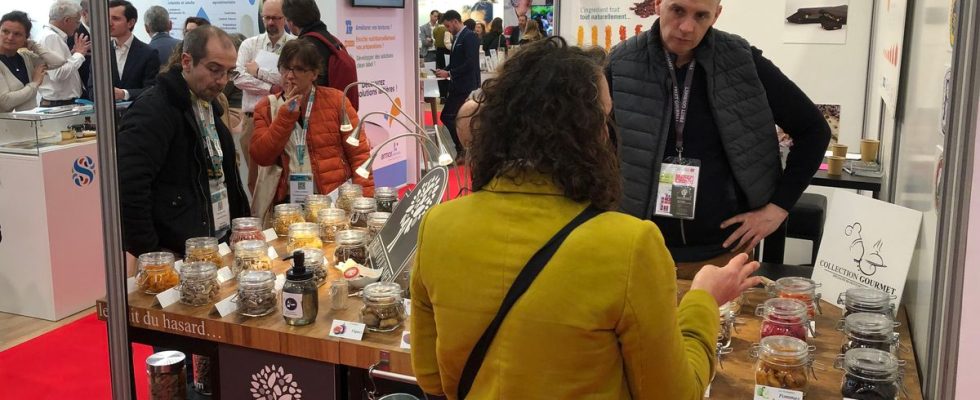“The future will be natural”, “Develop your naturalness”, “A healthier and tastier future”… The slogans are displayed in large, on almost all the stands. However, we are not at an organic and well-being fair but at the CFIA, the largest agri-food industry fair in France, which is held until Thursday at the Rennes exhibition center. A great gathering bringing together thousands of professionals who come to present or discover the latest food trends.
In this regard, it is the plant that has been given pride of place in recent years with a veritable explosion of supply. “It’s not a fad but a major trend that continues to progress against a background of climate emergency”, observes Etienne Guillocheau, nutrition consultant for the consulting firm Food Innov, based in Rennes.
In the spans of the show, vegetable alternatives are indeed present everywhere to replace beef steak, cooked ham, tuna, prawns and even foie gras, with a recipe based on vegetables and nuts. Based in Vitry-en-Artois in the North, the Accro brand launched in 2019 on this market by offering steaks or meat-like meatballs, based on pea and wheat proteins grown in France. “The market is exploding in France and all over Europe, which prompted players in the food industry to take this turn two or three years ago,” said Julien Dubois, sales representative for the brand.
Spices, plants or vegetables as colorants
In this plethoric supply, soy has given way to other foods such as legumes, which are increasingly being used in preparations. “Industrialists are rediscovering these plants which have long been set aside in favor of animal proteins”, indicates Etienne Guillocheau.
Less addicted to meat, the food industry is also trying to restore its image tarnished by several scandals. As the consumer is increasingly attentive to the content of labels and in search of healthy products, players in the sector are now exploiting the vein of naturalness. “They all want natural ingredients to replace E additives, which consumers are wary of,” says Arnaud Clément, head of Raps France. Almost a century old, this company offers professionals spice blends that act as coloring agents and natural antioxidants. Other players are also betting on plants or vegetables to replace chemical food colorings.
More natural but also more expensive additives
In 2019, a study by the Health Security Agency showed that the use of additives in the manufacture of agri-food products had generally decreased in ten years. “There is positive consumer pressure there,” notes Etienne Guillocheau. But it must also be constructive because food companies have constraints and cannot change recipes like that by simply replacing one ingredient with another. »
Commercial in France for the Spanish brand Catalina Food Solution, Aymen Mhiri also warns. “Manufacturers are sometimes overwhelmed by legislation,” he says. We therefore try to find more natural alternatives for their needs. But natural additives are more expensive than synthetic additives. This will necessarily have an impact on the price of the products. »

